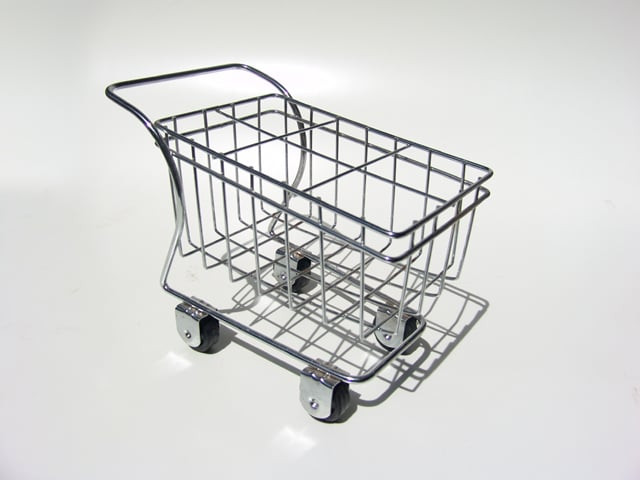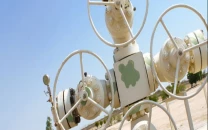Growing popularity of superstores fails to dent appeal of budget markets
Babar Market of Landhi mostly attracts people belonging to low-income, labour class.

Shopkeepers often refuse to attend phone calls, especially in rush hours, due to the presence of a large number of consumers.
Despite growing number of consumers flocking to supermarkets that offer a modern trade environment and help document the economy at the same time, Karachi’s traditional budget markets have been dealing with a consistently high traffic – a strong reflection of high consumer demand.
Take for example, Babar Market of Landhi. As a consumer goes through the congested and haphazardly constructed streets – better call them alleys – of the market, he can find most of the shops flooded with consumers, bargaining for prices of items ranging from grocery to clothing to home appliances and what not. Shopkeepers often refuse to attend phone calls, especially in rush hours, due to the presence of a large number of consumers.
Located in the heart of Landhi Town, a large industrial area in the eastern part of the country’s financial hub, Babar Market was established more than 50 years ago, according to shopkeepers The Express Tribune spoke to.

There are about 2,500 to 3,000 permanent shops in the market, said Sajid Nadeem, who has been running a general store in the market for about 20 years. In addition to these shops, a fleet of about 400 pushcarts – mostly selling fruits and vegetables – has become a permanent feature of the market.
Every single shop owner in the market claims that it is the largest open-air market in Asia, a claim not verifiable through any data as most of the trade is undocumented. In most cases, the consumers are not issued any receipts for their purchases. However, there are some shops that are worth more than Rs10 million, a strong indication that the market is on the radar of small businessmen.
On a slow day, the retail stores earn about Rs5,000 while sales can go up to Rs20,000 on a good business day, Nadeem said. The worsening law and order situation in the area often hurts their revenues, he said, the market remained closed for three days last week alone.
Babar Market has a large customer base because it mainly caters to the lower-income and labour classes that reside in large numbers along the large industrial state of Landhi, said Nadeem. The market is geographically well-placed for it also attracts customers from Malir, Shah Faisal Colony and Korangi.
The high competition forces shop owners to sell on low profit margins, making it one of the most affordable markets in the city, he said.
“The business is growing and there is demand that’s why we have been in the business for 24 years,” said Nadeem Ahmed of Mashallah Optics. It’s not only lower-income class but also those who are financially strong that do their shopping from the market.

“We sell third copy of a famous brand of glasses for Rs250 while the same pair is sold for Rs500 in air-conditioned malls,” he said. “We sell the first copy for Rs1,800 while shops in an upscale mall sell it for Rs5,000 or more.”
While the market still enjoys a high volume of consumers, it has lost some of its professional customers to a much better competitor – large retail stores and supermarkets.
“The businesses in general are growing, but they have lost some business customers – hoteliers, restaurants, caterers, canteens, factories and small and medium-sized retailers,” said Asif, a green grocer.
They have moved to bigger stores such as Metro, he said. They don’t have to deal with fatigues such as bargaining and parking at these stores, he said, and still save some bucks on their purchases.
The case of Babar Market shows that the supermarkets may be witnessing a high growth in their sales but they are far from meeting the consumer demand at large.
“Only a few supermarkets can’t meet the city’s demand, which is much higher than the supply,” according to Muzammil Aslam, Managing Director at research firm Emerging Markets Research.
The economist explained that Pakistan’s population is growing at around 3% while migration growth is even higher. “More than 10% of the population lives in Karachi and the city is expanding rapidly, especially on its outskirts,” he said.
As long as the population is growing, Aslam said, businesses in general won’t be stagnant.
Published in The Express Tribune, May 12th, 2013.
Like Business on Facebook to stay informed and join in the conversation.



















COMMENTS
Comments are moderated and generally will be posted if they are on-topic and not abusive.
For more information, please see our Comments FAQ